Document Author
Year Published
- 2015 (4) Apply 2015 filter
- 2003 (2) Apply 2003 filter
- 2007 (2) Apply 2007 filter
- 2013 (2) Apply 2013 filter
- 2016 (2) Apply 2016 filter
- 2018 (2) Apply 2018 filter
- 2021 (2) Apply 2021 filter
- 2004 (1) Apply 2004 filter
- 2009 (1) Apply 2009 filter
- 2011 (1) Apply 2011 filter
- 2012 (1) Apply 2012 filter
- 2014 (1) Apply 2014 filter
- 2017 (1) Apply 2017 filter
- 2022 (1) Apply 2022 filter
Topic
- (-) Remove Judges filter Judges
- 100% Access to Justice (23) Apply 100% Access to Justice filter
- Ethics Education (14) Apply Ethics Education filter
- Judicial Ethics (14) Apply Judicial Ethics filter
- Self-Help Centers (6) Apply Self-Help Centers filter
- Trial Court Self-Help (6) Apply Trial Court Self-Help filter
- Articles & SRLN Briefs (5) Apply Articles & SRLN Briefs filter
- Courts (5) Apply Courts filter
- Simplification (5) Apply Simplification filter
- Reports, Evaluations, Best Practices, Surveys (4) Apply Reports, Evaluations, Best Practices, Surveys filter
- Research (4) Apply Research filter
- Triage (4) Apply Triage filter
- Unbundling (4) Apply Unbundling filter
- Linking a Self-Help Center to Other Services (3) Apply Linking a Self-Help Center to Other Services filter
- Allied Professionals (2) Apply Allied Professionals filter
- Constitutional Issues (2) Apply Constitutional Issues filter
- Forms (2) Apply Forms filter
- Forms (2) Apply Forms filter
- Legal Aid (2) Apply Legal Aid filter
- Private Bar (2) Apply Private Bar filter
- Reports (2) Apply Reports filter
- Strategic Planning (2) Apply Strategic Planning filter
- Best Practices (1) Apply Best Practices filter
- Best Practices for Self-Help Centers (1) Apply Best Practices for Self-Help Centers filter
- Conferences & Summits (1) Apply Conferences & Summits filter
- Evaluation (1) Apply Evaluation filter
- Impact of Self-Represented Litigant Innovations on Cost and Efficiency (1) Apply Impact of Self-Represented Litigant Innovations on Cost and Efficiency filter
- Justice for All (1) Apply Justice for All filter
- Justice Tech Entrepreneurs (1) Apply Justice Tech Entrepreneurs filter
- Libraries (1) Apply Libraries filter
- Presentations (1) Apply Presentations filter
- Regulatory Concerns (1) Apply Regulatory Concerns filter
- Remote (1) Apply Remote filter
- Trainer of the Trainer Materials / Curricula (1) Apply Trainer of the Trainer Materials / Curricula filter
- Working Groups (1) Apply Working Groups filter
State
Tags
Post date
Search results
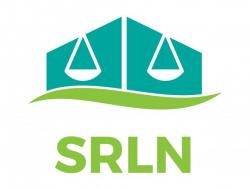
SRLN Brief: Memo on Model Code of Judicial Conduct 2.2 Revisions (SRLN 2012)
This memorandum lays out ways that states can develop state-specific comment language for their judicial codes. The memo reflects recent research, as well as recent state developments as of date of publishing. Judges Judicial Ethics United States SRLN Mem ...
Report: NCSC Judicial Conduct Reporter (Gray 2014)
This issue of the Judicial Conduct Reporter includes an indepth look at how states are addressing the ethics issues posed by self-represented litigants, including a review of case law and Judicial Code of Ethics 2.2. 2.2 Judges Reports Judicial Ethics Uni ...
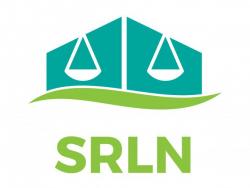
Resolution: Supporting Recognition of Chief Judge Eric T. Washington, DC Court of Appeals (2017)
Self-Represented Litigation Network Resolution 1-2017 Supporting Recognition of Chief Judge Eric T. Washington, District of Columbia Court of Appeals WHEREAS, Chief Judge Eric T. Washington has served as vice-chair or chair of the Access, Fairness and P ...
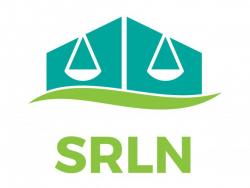
SRLN Brief: Procedural Fairness / Procedural Justice (SRLN 2015)
Research has shown that when defendants and litigants perceive the court process to be fair, they are more likely to comply with court orders and follow the law in the future—regardless of whether they “win” or “lose” their case. This is called procedural ...
Guide: Delaware’s Judicial Guidelines for Civil Hearings Involving Self-Represented Litigants (Delaware 2011)
The Delaware Supreme Court adopted these guidelines, effective May 11, 2011, designed to address concerns that Judicial Officers may have regarding balancing self-represented litigants’ perceptions of procedural fairness while maintaining neutrality in th ...
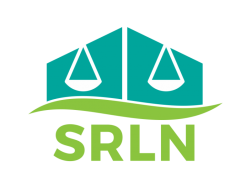
Judicial Guidance for Cases Involving Self-Represented Litigants
Judges are often unsure of how to handle cases which involve a self-represented party. Many court systems have produced judicial bench guides and other materials to ensure that self-represented litigants can present their case to the court in a meaningful ...
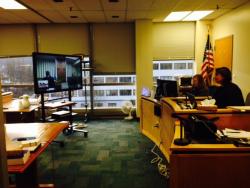
News: Alaska Court Uses Triage and Targeted Pro Bono Unbundled Legal Advice to Settle 80% of Contested Domestic Cases (Alaska State Court System 2015)
Various Supplementary Resources: Listen to a piece about ERP on NPR Learn more about the self-help services in Alaska for family law cases (opens as PDF) Early Resolution for Family Law Cases in Alaska's Courts Faster, Cheaper & As Satisfying: An ...
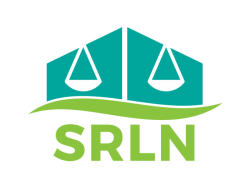
Article: Saving Courtroom Time: Techniques for Judges in Self-Represented Cases (Juhas, McKnight, Zelon, Zorza 2009, rev. 2015)
This article discusses 15 techniques that can increase courtroom efficiency when working with self-represented cases, and summarizes many of the practices suggested in the Judicial Curriculum (srln.org). Recommended Citation: Mark Juhas, Maureen McKnight, ...
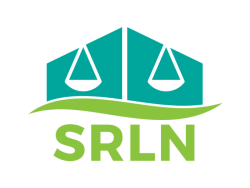
Conference: Harvard Judicial Leadership Conference (SRLN 2007)
Based on the research of the Self-Represented Litigation Network (SRLN), the resources below make up the original judicial curricula prepared by the National Center for State Courts (NCSC), the American Judicature Society, and the National Judicial Colleg ...
Judicial Resources
Judicial Resources Judges United States Katherine Alteneder 2021 ...